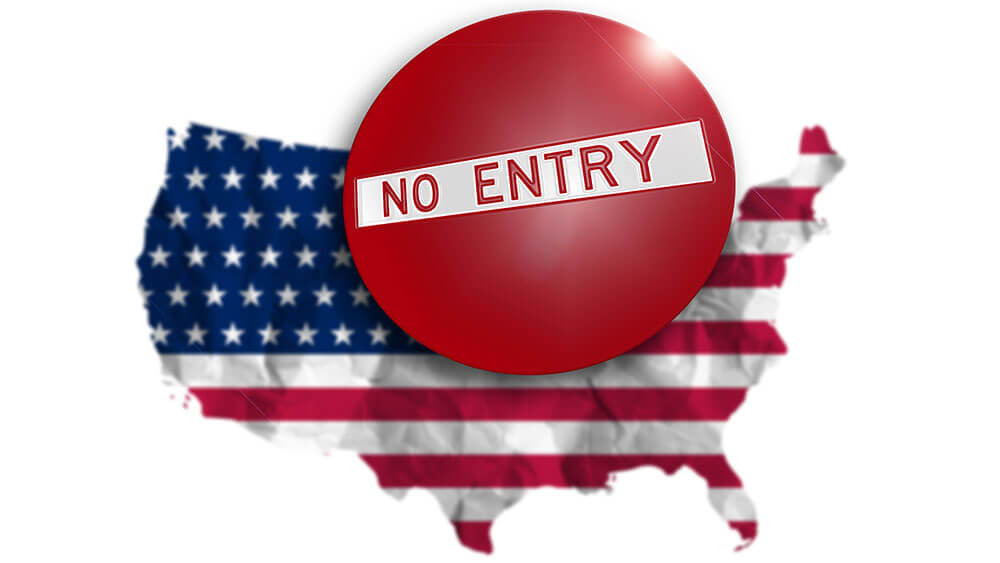Ideas worth spreading — it’s the principle behind the TED brand, laying the foundation for the face-to-face events around the world and TED Talks, some of the most-watched educational videos on the Internet. It’s also what powers the TED Radio Hour, a weekly program on National Public Radio (NPR) in which TED speakers are interviewed to more fully share their expertise on everything from colonizing Mars to understanding the power of kindness.
The Feb.15 installment of the program discussed unconscious bias. And while that’s an issue that hits home with the business events industry, the conversation turned to something even more relevant and timely for events held in the U.S.: a case-study example of how visa challenges can derail potential international attendees and speakers.
TED Radio Hour host Guy Raz interviewed Yassmin Abdel-Magied, an Australian author, television personality, and founder of Youth Without Borders. Abdel-Magied traveled to the U.S. to speak at a session, “The M Word: No Country for Young Muslim Women,” during the PEN World Voices Festival in New York in April 2018. When Abdel-Magied landed in Minneapolis en route to the conference, she was denied entry to the U.S.
Even though Abdel-Magied is an Australian citizen, her country of birth, Sudan, was at issue. Sudan was on the Trump administration’s original travel ban list of majority-Muslim nations. Although it was removed from the list, along with Chad and Iraq, that happened in June 2018, several months after Abdel-Magied’s experience.
And that experience, she told Raz, was deeply humiliating. The border agents confiscated her phone, and “they then sort of sat me down and booked my flight back to London where I’d flown from. And that was the end of that. And in fact, they said, ‘If you refuse to get on this plane voluntarily, we will ban you from the United States for five years.’
“And then all of a sudden where I was born became a thing and there was a series of questions that were sort of increasingly aggressive and so on,” Abdel-Magied continued. “And then you have a moment where you realize you are literally powerless and because of who you are — a Sudanese-born Muslim woman — nothing else matters. It was such a humiliating experience and one that really made you feel so small and takes away your dignity in a way that very little else does. You know that that experience would have been very different if I was a different person. If I looked different, if I was born in a different country, that experience would be very, very different.”
According to a statement released by U.S. Customs Border Protection at the time, the issue was not Abdel-Magied’s appearance. “During the inspection, CBP officers determined this individual did not possess the appropriate visa to receive monetary compensation for the speaking engagements she had planned during her visit to the United States,” the statement read. “As such, she was deemed inadmissible to enter the United States for her visit, but was allowed to withdraw her application for admission. The traveler is eligible to reapply for a visa for future visits.”
Abdel-Magied’s story highlights a challenge supported by results of the most-recent Convene Annual Meetings Market Survey, published next month: Eighty-eight percent of respondents said that it was more difficult for prospective registrants to obtain visas in 2018 than in 2017.
That’s an increase over the previous year’s survey, in which 82 percent of planners said they experienced more visa hurdles in 2017 than in 2016. But the extent of the challenge is perhaps best illustrated by this statistic: There was a 52-percent increase this year in the number of planners who said that visas were more of a challenge compared to those who responded to the 2016 survey and cited greater visa challenges that year than in 2015 — not the kind of growth planners welcome.
Attendees and speakers aren’t the only ones facing issues with visa approvals. Click here to learn about the obstacles that organizers of the Fifteen Seconds Festival faced in their inaugural event in the U.S.

